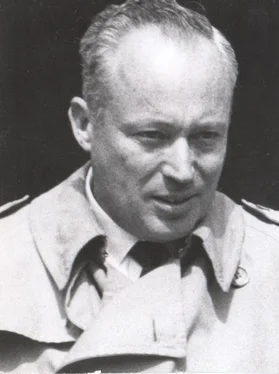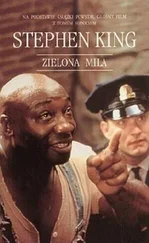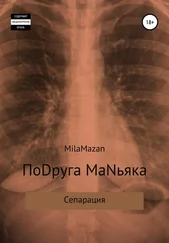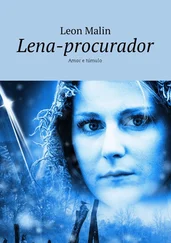Deborah appeared down the path. She looked around for him, but he did not signal. For a moment he wanted only to gaze on her. Each time he saw her it was the same as the first. She waved and sat beside him and he quietly took her hand. For a long time they did not speak, nor did they hear the swirl of foot traffic around them or the sounds of giggling from the lake where a soldier stopped rowing his boat and nearly tipped it climbing back to his girl, nor did they hear the swans flutter indignantly to get out of the boat’s way.
“I came as soon as I could get away,” Deborah said at last.
“Why wouldn’t you come to my apartment?”
Deborah merely shook her head. “Chris,” she sighed, “what we have been doing has never been right. Only now it seems even more wrong with Paul away.”
“It’s seemed so long. Just listening for you every minute.”
“You know I wanted to come,” she said. Her fingers betrayed her nervousness so badly that she withdrew her hand.
“I’m going off tomorrow,” Chris said.
She was startled.
“Just a few days. I’m going to make a round of the border.”
“I’m glad you called me.”
“Since the other night you haven’t been off my mind a minute. Deborah, we’re sitting here in the sunlight and we can think. We’ve just got to have this out with Paul.”
“No, Chris. Not with him in the army.”
“Before that it was another excuse, and before that another. I swear I’ve been hoping he won’t come back.”
“Chris!”
“I know, he’s a fine fellow.”
“I’ve thought a lot about us too, Chris. When I’m with you—it’s—I never thought it would ever come to me. But at the same time I am doing something against everything I’ve believed in. I’m not going to leave Paul.”
“Is there any feeling between you and him?”
“Not the way you mean. There never has been, you know that. There are other ways a man and woman can be something to each other.”
“Deborah, I’m not leaving you until you throw me out.”
“Then we have come to that. I can’t continue to see you and keep what little is left of my self-respect.”
His hand touched her cheek and her neck, and she closed her eyes. “Don’t, Chris, you know how I am when you touch me. Oh, Chris, all I do is give you problems. I’m no good for you.”
She felt his lips touching her face. “Come on up to my place,” he whispered. “I’ll undress you and we’ll lie in bed and listen to music and open a bottle of champagne ...”
“Chris ... get up and walk away ... please.”
“I will if you really want me to.”
“You know I don’t.”
The afternoon was filled with a hundred kisses and endearments and a hundred more. Their love-making carried with it an intense sort of desperation, and when they had exhausted each other they fell into deep, glorious naps. When they awoke, Deborah was happy. She bathed and roamed around the kitchen, all but lost in Chris’s big terrycloth robe, and fixed the steaks and iced the champagne while he soaked in a steaming tub.
“Wash my back!” she heard him call.
When she came into the bathroom, his feet were up on the edge of the tub and he was singing a Verdi aria, trying for a high C, which he missed by a full six notes. Deborah whimpered sensuously as she knelt beside the tub and rubbed the soap over his back. He tried to open her robe.
“No peeking,” she said.
She grabbed his hair and dunked him, then covered his wet face with kisses.
Toward evening it grew chilly and he lit a fire. They finished their meal and lay contentedly on the big sofa, sipping warming cognac. Deborah opened the robe and closed it over the two of them, and his hand traced the lines of her body from her shoulders to her knees.
“Would you believe that I was such a terrible prude and such a good girl? What have you done to me, Mr. de Monti?”
Deborah Androfski was only eleven when her mother died. She had to assume the role of homemaker for her father and little brother, Andrei. Before and after school, her job never ended. She had to cook and clean and do laundry and shop. They were poor as only a Polish Jew could be. She had to spend hours bargaining and haggling in the filth and poverty of Parysowski Place to save every zloty.
It seemed that all Deborah could remember of her mother after a time was an image of a tired and pain-filled woman waiting for the redemption of death to take her away from the smells and the dirt of Stawki Street. Momma always held her back and groaned as she climbed the stairs.
Momma always had a new ache in a never-ending assortment of them.
Israel Androfski was able to find respite from the struggle of existence in the comforts of a deep-rooted Jewishness which bordered on fanatic joys through prayer. He could detach himself from the misery around him at synagogue. This was denied Momma, for everyday prayer was a privilege of men.
Being a “good Jewish wife” imposed rigid rules of life. As Deborah grew older, all the little vignettes and mosaics began to take form and meaning. Why Momma always complained especially on the Sabbath eve when Poppa came home from synagogue, for a good Jewish wife was supposed to reconsummuate the marriage every Friday night. And this was painful and unpleasant for Momma. Momma lost three children by miscarriage; one other died from disease when a year old. This came from what Momma and Poppa did on the Sabbath eve, and it always ended up in pain and suffering.
When Andrei was born, this brought on a new set of ills to Momma’s insides.
“Be careful of the boys,” Momma told Deborah. “They will make you pregnant and you’ll spend your life scrubbing floors and washing and over an oven and giving them babies. Boys are no good, Deborah—boys are no good.” Momma went to her grave decrying the suffering connected with being a woman.
Momma’s prophecies were borne out when Deborah had to scrub and clean and cook and wash and shop. It was like a voice from the grave always on her shoulder.
By the time she had reached fifteen, her father had worked his way out of the slums and moved the family to the nice Sliska Street neighborhood where Orthodox Jews of means resided.
Although Israel Androfski was a rather kindly man, in the back of her mind Deborah always blamed him for her mother’s death. And when she came of an age to understand why her father visited certain women with bad reputations, it further proved, in her mind, the sordidness of what men and women did in bed. Family responsibility had imposed upon her a passive nature. She was always lonely, as long as she could remember, except for Andrei. Her one solace was the piano.
When the burden of being a homemaker lifted after they moved to Sliska Street, Deborah threw all the latent hurts into it, bringing about an artistry that moved her close to dizzying heights of mastery.
Then, as suddenly as she had plunged into it, she rebelled against it when her father demanded she spend more and more time in its study.
A strange and unexplainable phenomenon stirred within her which overpowered the fears of night. A desire for freedom. She wanted to explore that strange world beyond. An instinct of survival let her know she was drowning in a mental ghetto.
In her first act of defiance Deborah quit the piano and demanded to go to the university to study medicine. Her first look at the outside world gave her her first true friend, Susan Geller, a nursing student.
Deborah Androfski was eighteen years old when she met Dr. Paul Bronski, the brilliant young professor for whom every female student in the university carried a secret torch. Deborah was an uncommonly beautiful girl, and as uncommonly naive as she was beautiful.
Paul Bronski, who had been rather meticulous in every move he made in his life, wanted her for his wife. She had every quality—intelligence and beauty—and would be the perfect mother and hostess. She could supply the needs of a man when he desired, and she would be good for his career.
Читать дальше












